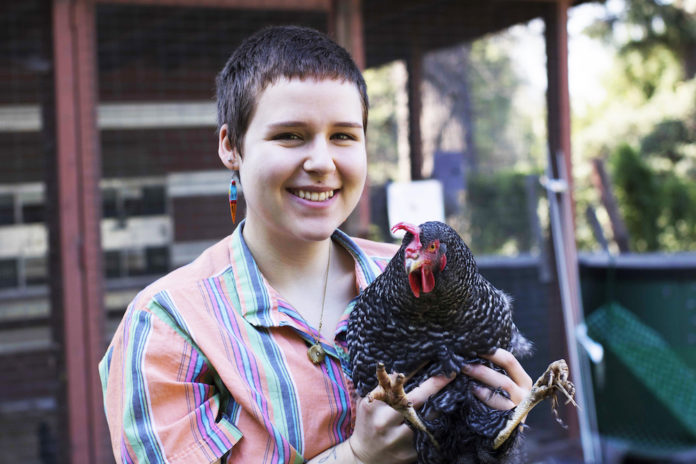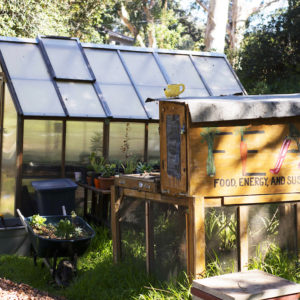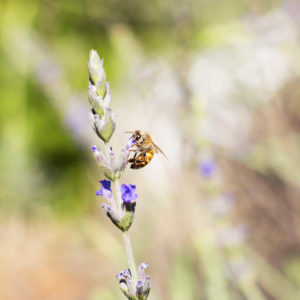
In 2019, the Food, Energy and Sustainability Team (FEAST) Garden celebrated its 10th birthday. FEAST’s first harvest from the Bruce Steele Garden was August 2009, and after 10 years of operation, FEAST is currently fundraising to restore native plant life on Mount Fiji, purchase new chicks and add a second chicken coop.
Ellie Malmon-Andrews (sophomore) is FEAST’s nursery operations manager. FEAST’s budget currently goes toward buying food for the chickens, plant beds, seedlings and fertilizer, according to Malmon-Andrews.
Seth Davis (senior) is the interpretive gardens manager and leads the Mount Fiji restoration project. According to Davis, FEAST plans on building new hammock posts on Mount Fiji and behind the Urban and Environmental Policy Institute (UEPI) building.
“For me and a lot of people I know, it’s a place where you can get away from the academic side of campus and find a little spot of nature in LA, which sometimes can be hard,” Davis said.

Davis said FEAST supports native wildlife on Mount Fiji, including ground squirrels and coyotes. According to Davis, the garden also tends to attract pollinators, an important part of any native ecosystem.
“We have a lot of flowering plants, especially the pollinator garden, that help all the wildlife on campus,” Davis said. “[The plants] provide a little bit of a fire buffer, especially because we have fires up in the hill every once in a while.”
Celeste Padula (senior) is the director of FEAST and has been involved with the organization since her first year at Occidental. According to Padula, Feast will use part of the money to purchase a separate chicken coop for the baby chicks, who will be slowly integrated with the other nine hens.
Padula said chickens stop laying eggs around 5 years old. FEAST’s hens range from 3–6 years old. The egg production has decreased as the chickens pass egg production years. After six months, Padula said, the chicks will begin producing eggs, replenishing their egg supply.

“They all have different names and different personalities,” Padula said. “They’ve grown up around students, so they’re some of the sweetest chickens I’ve ever met because they love to be handled and they love getting snacks. They’re just really sociable.”
Malmon-Andrews said one of FEAST’s future plans is to have a farm above campus and that the project is not currently in the making.
“There is this plot of land back behind the soccer fields where we would like to put in this two-acre plot of, basically, a long stretch of land,” Malmon-Andrews said.
According to Malmon-Andrews, the amount of produce FEAST is able to produce from the Bruce Steele Garden is limited.
“Instead of having garden beds like we do now, which is all that we can do, we want to increase our production and the availability of fresh food on campus by creating a larger site,” Malmon-Andrews said.
With the two new acres of farmland, FEAST could not only send produce to the Marketplace, but also sell produce to community members once certified to vend the produce.
Davis said the Bruce Steele Garden is open for everyone to visit, even if they do not have a particular purpose in mind. Padula said community members enjoy bringing their children to play with the chickens.
“It’s like a small little park, basically,” Padula said. “Then we also just have community members coming over a lot who are like, ‘Oh, there is some food, I could take home some eggs.'”
Padula said she finds FEAST to be a crucial part of her experience at Occidental. One of FEAST’s goals this semester is to increase the amount of students that visit and volunteer at the garden, according to Padula.
“I see FEAST as being a great event space,” Padula said. “[It’s] also a place students feel they can come at any time and just sit and study and have this amazing little oasis on campus.”
![]()



































